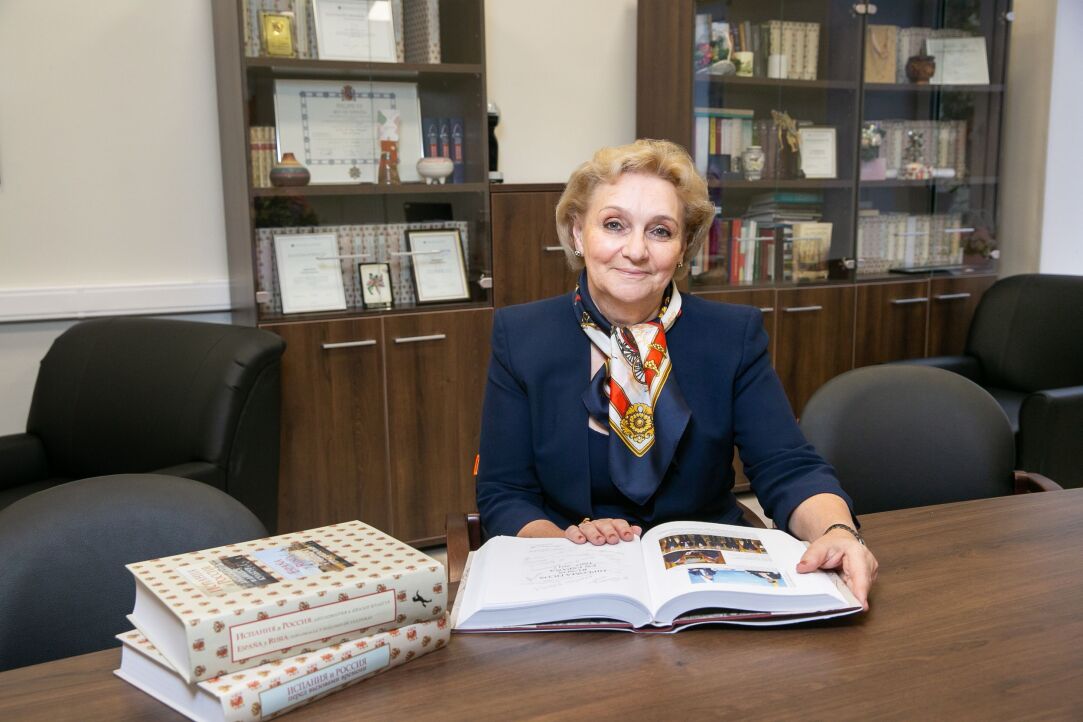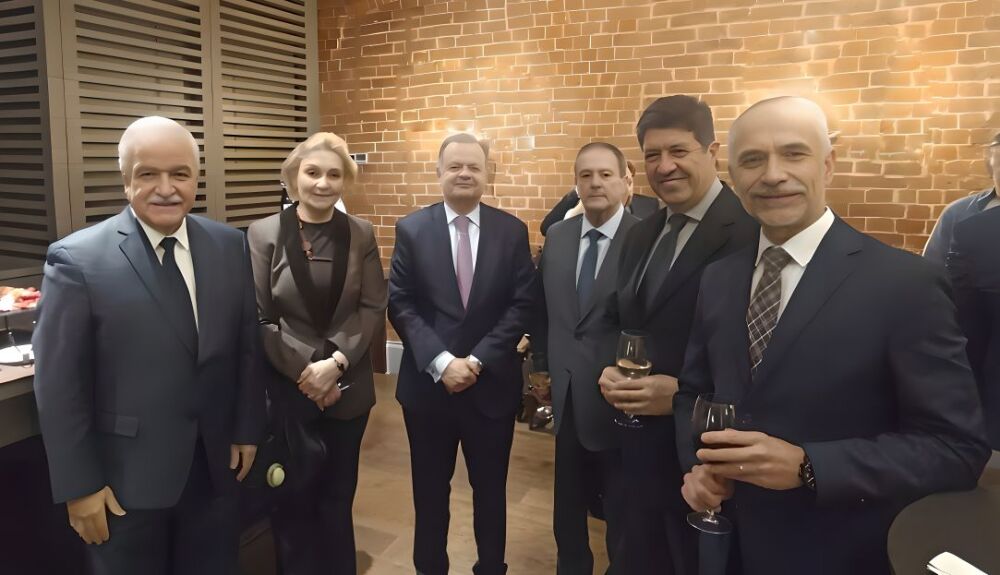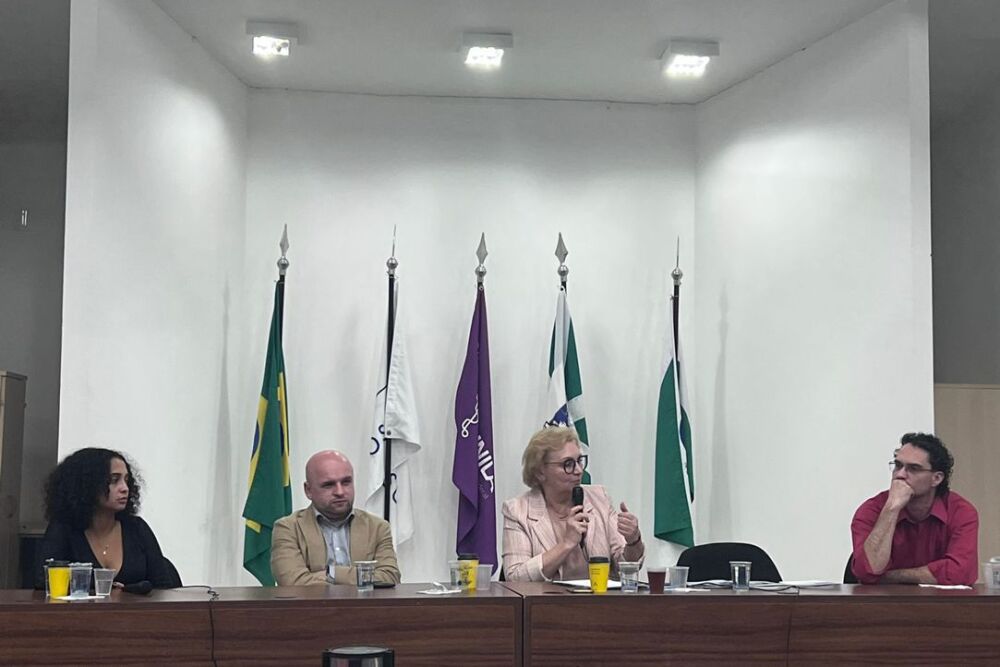‘Compare Viewpoints, Listen to Others, and Try to Make Yourself Heard’

Prof. Olga Volosyuk, Head of the School of International Regional Studies, Faculty of World Economy and International Affairs, spoke to the HSE News Service about international relations, research, and conferences organised by the School.
— The HSE School of International Regional Studies is relatively young—it was established only five years ago. What falls within the School's sphere of interests and research?
— Our academic interests cover the entire world, focusing on the study of regions.
We strive to comprehensively research international relations, world economy, history, and geography
Therefore, we have colleagues who specialise in the East, broadly defined. These include specialists in China, Japan, India, and other countries. We also have specialists in Latin America and Africa. For example, Prof. Andrey Baklanov is one of the leading Russian scholars on the Middle East, Prof. Evgeny Kanaev heads our research group on Southeast Asia, and Prof. Sergey Luzyanin—the group on East Asia.
This School’s focus corresponds to the peculiarities of the situation in the world and Russia’s politics associated with the ‘pivot to the East.’ But this does not mean that the study of the West is forgotten and abandoned. The school employs a leading Russian specialist in European studies, Prof. Timofey Bordachev, while Prof. Ekaterina Entina studies the countries of the Balkan Peninsula.
I myself am a Hispanist, and my love for Spain remains unchanged. In May, I am planning to make a report and moderate a session at a major international conference on geographical historical sources in Madrid. Prior to that, in April in Saint Petersburg, jointly with the Institute of Russian Literature of the Russian Academy of Sciences, we hosted a special session dedicated to Agustín de Betancourt. Betancourt was a Spanish engineer who built famous buildings in Russia such as Saint Isaac’s Cathedral in Saint Petersburg and the Moscow Manege. Our colleagues from the Polytechnic University of Madrid and the Autonomous University of Madrid participated in this session. We have many joint publications, and we are planning other conferences. This is how we maintain human, scientific, and cultural ties.
— This year, the School of International Regional Studies is leading three major research projects. Can you provide more details about these initiatives?
— The first project aims to study the establishment of a global economic space, essentially forming a new world economic order. Since this project is related to the role of the Middle East, Prof. Baklanov gathered the best specialists from our university, scientific institutes of the Russian Academy of Sciences, and other Russian universities into a scientific group.
It is important that students of the HSE Middle East Club actively contribute to this project
The second project, which I am leading, is related to the development of the Global South. The policy of ‘Russia's Pivot to the East’ encourages academic circles to take a closer look at the regions and countries of the Global South, the relations between countries, the so-called ‘South–South relations’. It's crucial for the project's success that graduate students such as Yulia Alekseeva, Aisylu Garayeva, Ilya Kozylov, Murad Sadygzade, and Ana Livia Esteves actively participate, as well as our master's and bachelor's students: Gulhar Bayramova, Sergio Terron, Maria Antasheva, Mateo Rojas, Standhope Anamoa-Pokoo, and others. For example, we have conducted intriguing investigations into the ties between Latin America and China; Korea and ASEAN; China and the Gulf countries; India and Brazil. In our work, we unite the diverse academic interests of our scholars.
The third project, led by Olga Solodkova, focuses on South Asia, with a particular emphasis on India. This group is actively developing contacts with India and has published several academic papers with our Indian colleagues. I would like to mention one of them, Prof. Suresh Gopalan from Jawaharlal Nehru University (Delhi), who not only participates in our scientific projects, but is also giving lectures to our international relations students on the Indian economy during this academic year. This is a new form of cooperation between the School and foreign universities. This year, the project leaders have decided to expand their research interests to the states of South Asia as a whole.

— The Global South is steadily moving to the forefront of academic focus. What events organised by the School of International Regional Studies are dedicated to this topic?
— The Global South is a very broad concept.
Given that Russia's ties with countries of the Global South have significantly intensified, the Global South has become the key topic of research at our School
In December 2023, we welcomed our colleagues from Brazil, Argentina, India, and Pakistan at our major international conference, where we centred our discussions on the Global South and the new concept of ‘world majority’. It was our fifth anniversary conference—the same number of years as the School of International Regional Studies has been working.
At the beginning of April, a roundtable discussion titled ‘Russia and Most Influential Countries of the Global South: Comparing Approaches to the New International Political and Economic-Financial Order’ took place.
At the end of April, there was also an online meeting on Iran with our colleagues from Allameh Tabatabai University, followed by a major roundtable discussion on the Global South. The leading scholars from the University of Campinas in Brazil, Jawaharlal Nehru University, and Institute of Strategic Studies of Islamabad (Pakistan) came to Moscow.
— Could you please tell us more about the recent April roundtable dedicated to the Global South?
— The roundtable's goal was, firstly, to summarise our research, which colleagues are conducting within their projects. Secondly, to listen to the viewpoints of our foreign guests. One of our friends and colleagues, Professor Suresh Gopalan from Jawaharlal Nehru University, participated in the discussion. Our Iranian colleague, postdoc at our School, Dr Seyedmohammad Seyedi Asl, whose work at the School is extremely important in light of the developing ties with Iranian universities, and Ana Livia Araujo Esteves, our Brazilian graduate student, participated. Ana Livia Araujo Esteves is completing her PhD and already works at the School as a visiting lecturer, conducting seminars on Ibero-America. Prof. Andrey Baklanov made a report which dealt with the concept of the new economic order. Anastasia Likhacheva, Dean of our Faculty, and Evgeny Kanaev, professor of our School, also participated in the discussion.
We analysed, for example, whether China is part of the Global South, or whether Russia is part of the Global South. How to pose the question—‘Russia in the Global South’ or ‘Russia and the Global South’? We also debated whether we can replace the term ‘Global South’ with the term ‘world majority,’ which has already entered not only the academic but also the political discourse.
Sometimes our views aligned, sometimes they did not. We did not reach a single conclusion because ‘Global South’ is a broad and multifaceted term
It was a very important discussion between Russian and foreign scholars. We shared the Russian position on the issue and got the views from the perspectives of our foreign colleagues. And that is the most important thing: to compare viewpoints, listen to others, and try to make yourself heard. This, I believe, is the main task of all the scientific events we organise.

— The School of International Regional Studies is engaged in intensive work, exploring world regions, and strengthening international ties at HSE University. What else is in the School's development plans?
—Over the past five years, we have developed a significant number of contacts with colleagues at foreign universities worldwide. If we talk about Ibero-American studies, we have intensified ties with universities in Latin America. Last May, I visited Brazil, where I participated in expert discussions at three universities.
Excellent contacts are developing with universities in China. Cooperation is underway with universities in India. We are now beginning the dialogue with universities in Iran
Based on this collaboration, I have an idea to form an international scientific group and establish a laboratory to study the Global South, which I refer to as the ‘world majority’. The goal of this new academic unit would be to conduct large-scale research projects. We have held preliminary discussions with colleagues from India, Brazil, and Argentina about creating such ‘mirror laboratories’. It is still too early to talk about the results, but it seems to me that our colleagues are as enthusiastic as we are.
See also:
HSE University-St Petersburg to Open New ‘International Relations’ Track in ‘Political Science and World Politics’ Programme
Starting in 2025, the Bachelor's programme ‘Political Science and World Politics’ at HSE University-St Petersburg will train specialists not only in political science but also in international relations. This will significantly increase graduates' career opportunities in analytics, diplomacy, and consulting. Learn more about the changes from the programme's academic supervisor and professors from the new track.
'Learning what You Really Need'
Anastasia Likhacheva was appointed Dean of the Faculty of World Economy and International Affairs in November 2021. During her first six months in this position, she has faced numerous new challenges. In her interview with HSE University Life, she explains how she and the Faculty have been coping, why she spent just one year working outside of academia, and how prospective students can rethink their future careers in international relations.
HSE Hosts International University Consortium for the First Time
From February 25 to March 2, HSE’s Faculty of World Economy and International Affairs hosted an academic module of the University Consortium, an inter-regional training programme for outstanding students that aims to promote mutual understanding, balanced analysis, and genuine dialogue among the US, EU, and Russia.
Students of Parallel Degree Programme in International Relations Perform Significantly Higher than International Average on University of London Exams
The number of HSE students who successfully passed the exams conducted at the University of London in 2018 was significantly higher than the average for other universities participating in the international programme there. HSE received the status of Recognized Teaching Centre.
Exploring Fake News and Propaganda in Today’s World
This month, Dr. Oliver Boyd-Barrett, Professor Emeritus at Bowling Green State University in Ohio and California State Polytechnic University, Pomona, delivered at open lecture at HSE Moscow entitled ‘Fake News and Propaganda’. An expert in international media, war and propaganda, and media political economy, Dr. Boyd-Barrett is the author of a number of books, including ‘Western Mainstream Media and the Ukraine Crisis: A Study in Conflict Propaganda’ (2016) and ‘Media Imperialism’ (2014). Following his lecture, he spoke with the HSE News Service about the topic of fake news more broadly and about how people can protect themselves from it.
Stranger in Moscow: A Tale of German Student’s Adventures in Russia
Linda Moessler is a German student who spent her spring semester studying international relations at HSE Moscow. Despite political tensions and cultural differences, Linda managed to fit in greatly and enjoy her stay in Russia. Miss Moessler agreed to tell us about her experience as a foreign student at HSE. Her tale will surely be of great interest for those curious about how international students live in Russia.
Attracted by the Variety of HSE’s Programmes and Students
Alexander Bespalov, a first-year student in the HSE and University of London Parallel Degree Programme in International Relations, was born in Israel to parents who had emigrated from Russia. He recently sat down with the HSE News Service to talk about why he chose to come to Russia for study, the challenges he has overcome, and what he is looking to achieve during his time at HSE.
Russia and China Becoming Closer
On July 3-10, the IV International Russian-Chinese Summer School on International Relations, ‘Space and Time in the Eurasian Era,’ took place in Moscow. The event was organized by the HSE and East China Normal University. A total of 15 Russian and 12 Chinese students are taking part in the summer school. The summer school, whose working language is English, is intended for undergraduate and graduate students from Russia and China that are interested in international relations.
On the Fast Track at Aix-Marseille School of Economics
Vera Danilina, Senior Lecturer in the Department of World Economy (Faculty of World Economy and International Affairs), spoke recently about her experience as a participant in the Fast Track programme at the Aix-Marseille School of Economics (AMSE, Aix-Marseille University) in France.
An Excellent Platform for Academic Debate and Public Education
Dr. Marek Dabrowski, CASE Fellow at the CASE — Center for Social and Economic Research in Warsaw, Poland, has participated in every HSE April Conference since 2001, missing just the 2000 inaugural event. A professor with decades of experience in the field of economics, Dr. Dabrowski’s current areas of expertise range from monetary and fiscal policies and political economies in transition to perspectives on European integration and European Neighborhood Policy. In advance of next week’s XV HSE April Conference, Dr. Dabrowski kindly took part in a brief interview with the HSE News Service.


